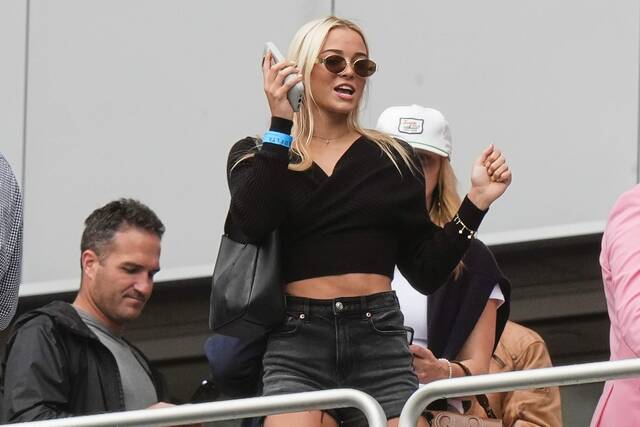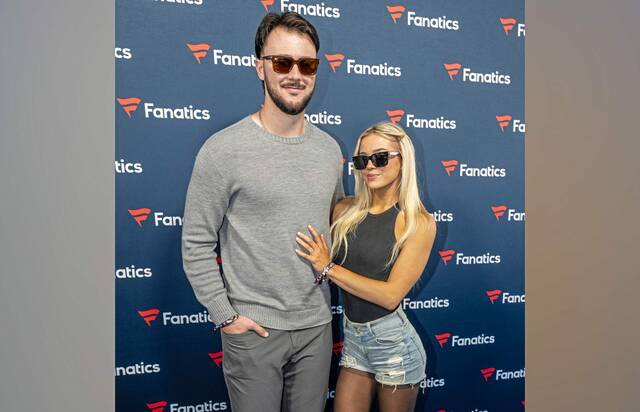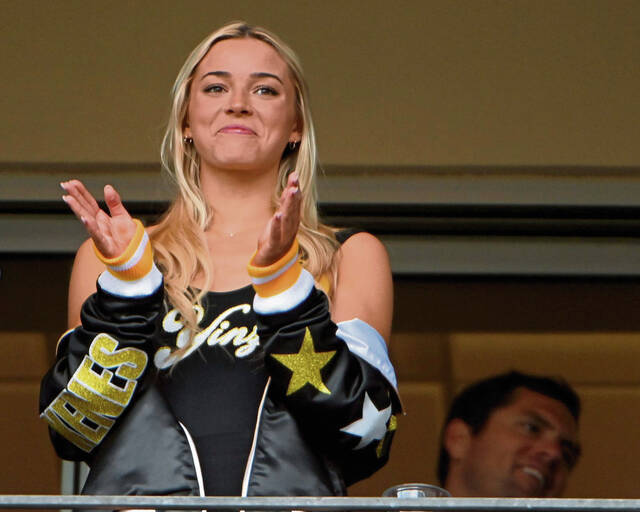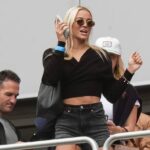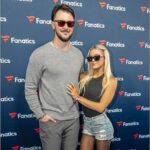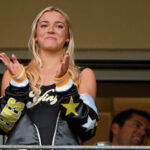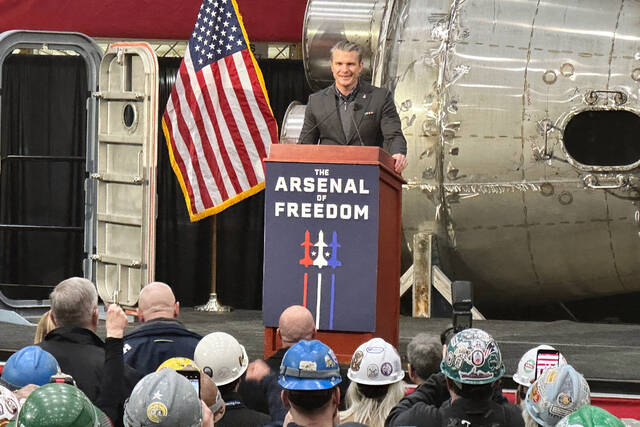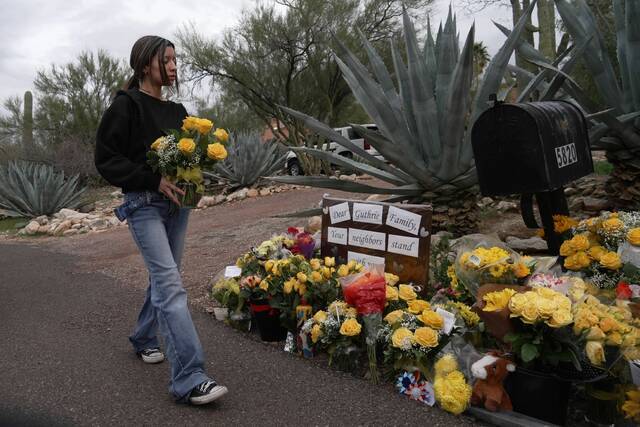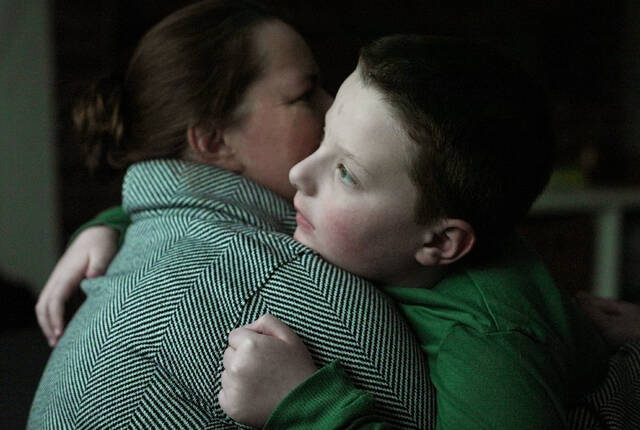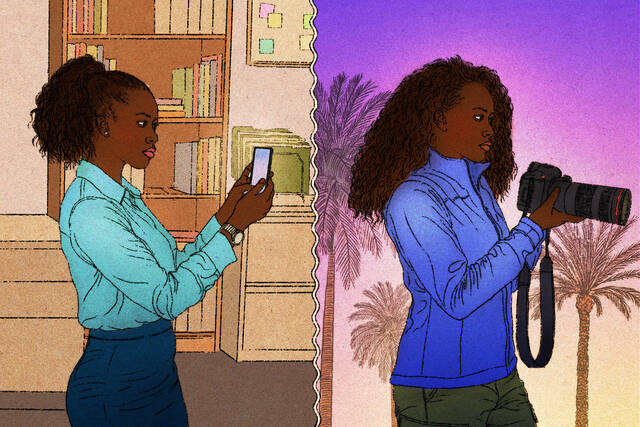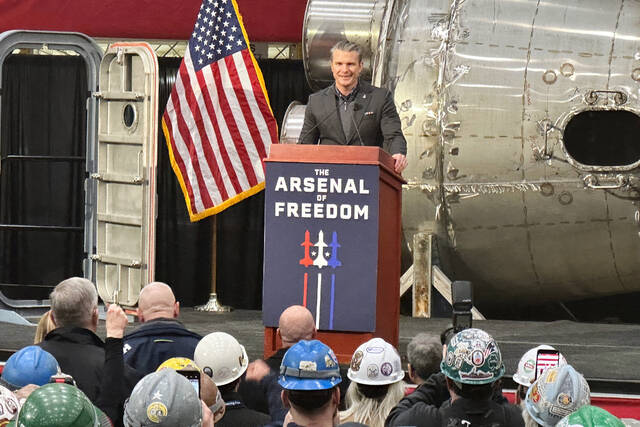Livvy Dunne has parlayed her successful stint as a collegiate gymnast at LSU into a career as a social media influencer and model.
She can be seen in ads for Fanatics, including one where she appears shrouded in bubbles in a bathtub in the middle of a football field.
“Fanatics blows every other sportsbook out of the water,” she says.
Dunne’s advertisements are “rewriting the rules,” Fanatics said when the campaign launched in August.
Indeed.
Dunne’s ads were running as her boyfriend, Pittsburgh Pirates pitcher Paul Skenes, was capping a season that saw him among those favored to win the National League Cy Young Award.
The situation illustrates the balancing act athletes and the leagues and teams they’re a part of face in a world where there’s also a crowded online betting market that includes DraftKings, FanDuel and BetRivers — legal in 38 states, including Pennsylvania.
A federal probe into illegal gambling involving NBA players and organized crime figures brought the issue into the spotlight this week.
The story was breaking as Harrisburg-based attorney Phil Petrina spoke to TribLive on Wednesday.
Petrina and others like him are working to navigate the Pandora’s box that opened when Name, Image and Likeness deals started to become legal for student-athletes and it became legal to bet on sports.
Petrina heads up the Name, Image and Likeness practice group for the law firm McNees, Wallace and Nurick. As such, he advises universities and athletes in a world where students can market themselves.
NCAA rules prevent student-athletes from endorsing betting companies, Petrina said. But athletes are allowed to bet on pro sports, and once they graduate they can do what they want.
Dunne graduated in December 2024 and became a full-time model and social media influencer. Her publicist didn’t immediately respond to a message seeking comment.
“She’s now able to do those types of endorsement deals on her own,” Petrina said.
As a person who believes in capitalism, he said he supports Dunne.
He also supports the NIL rules that allow athletes to get a share of the profits generated by sports at all levels, he said.
Petrina works with former Pirates pitcher Jason Grilli at Pittsburgh-based NIL Playbook, a firm that advises student athletes as they market themselves.
“You really need a team of people helping you through it because it’s complicated,” Petrina said. “There aren’t a lot of clear-cut guidelines in this. A lot of the lines are pretty gray, especially right now.”
Sports agent Tom Droney of Franklin Park is also among those working in this new environment.
A former Sewickley Academy basketball standout, Droney, also played at Davidson College. He works with Toronto-based We Shall, a firm that represents several top-tier college players for their NIL opportunities.
He’s watching the NBA gambling story closely and said he wouldn’t be surprised if something similar happened in college sports.
“Unfortunately, I think we’re going to see a lot more college athletes getting wrapped up in that stuff,” Droney said.
It’s tempting for young adults who now have access to a lot of money and are surrounded by friends, family and peers, he said.Athletes need to be careful about who they decide to trust, Droney said.
He tells his clients: “Be smart about what you’re doing,” he said. “Not only about what you’re doing, but also the people in your circle.”


